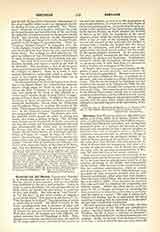

Gervase (JERVIS), GEORGE, priest and martyr; b. at Boscham, Suffolk, England, 1571; d. at Tyburn, April 11, 1608. His mother’s name was Shelly, and both his father’s and mother’s families had been long established in the County of Suffolk. Losing both parents in boyhood, he was kidnapped by pirates and carried off beyond seas, remaining in captivity over twelve years. He lost his religion during that period; but, when at last he was able to return to England, and found that his eldest brother Henry had become a voluntary exile in Flanders in order to be able to practice his religion, George followed him there and was soon reconciled to the Church. He entered the English College at Douai in 1595, and was ordained priest in 1603. He at once went on the English mission. He labored very successfully for over two years, but was arrested in June, 1606, and banished with several other clergy. He then made a pilgrimage to Rome, and there endeavored to enter the Society of Jesus, but, not being admitted for some unknown reason, he returned to Douai, where he received the Benedictine habit. His brother Henry had obtained for him a comfortable living near Lille, being anxious to preserve him from the persecution then raging in England. But George was determined to labor for the conversion of his native land, and succeeded in returning safely to England, but was soon arrested and incarcerated. Refusing to take the new oath of allegiance on account of its infringing upon spiritual matters where Catholics were concerned, he was tried, convicted of the offense of merely being a priest, under the statute of 27 Elizabeth, and was hanged, drawn, and quartered at Tyburn. Some authorities say that he did not receive the Benedictine habit until a short time before his death from Father Augustine Bradshaw.
C. F. WEMYSS BROWN

